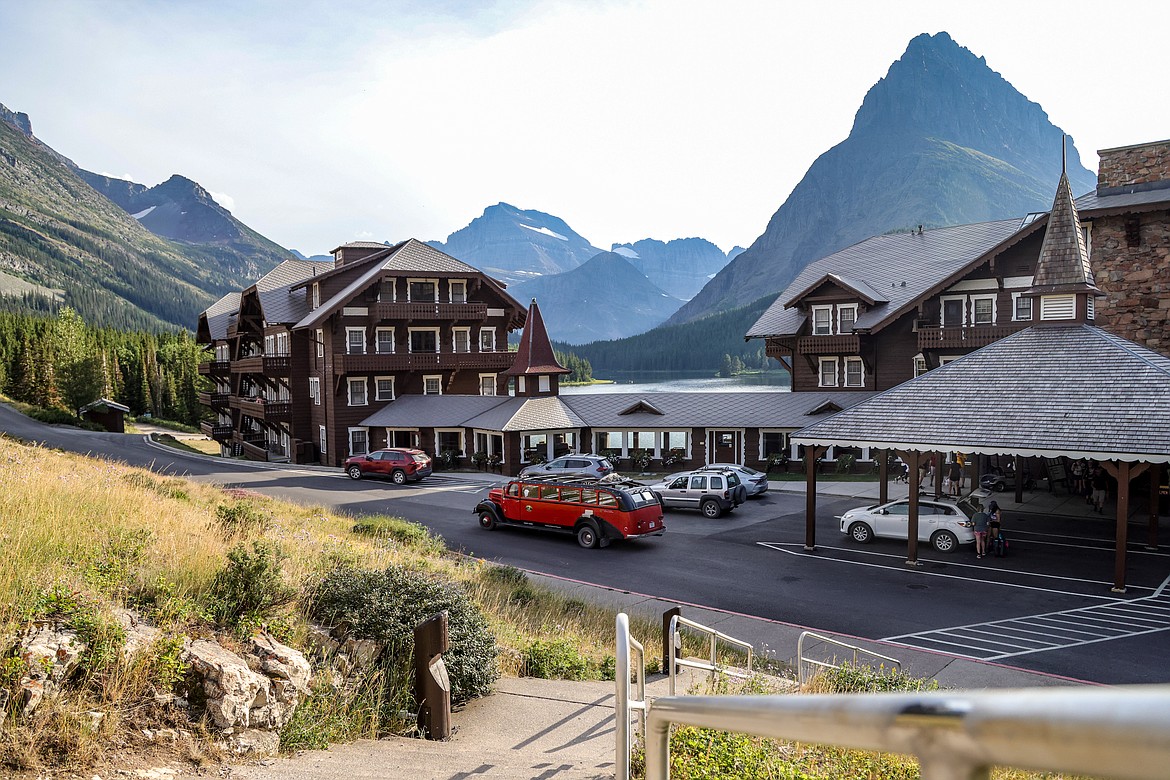Glacier's east side reservation plan receives scrutiny
Glacier National Park will expand its vehicle registration program to limit access and reduce crowding during the busy summer months. But a decision to include east-side destinations like the Many Glacier and Two Medicine valleys is getting mixed reviews from residents and business owners on that side of the park.
Beginning in 2021, Glacier Park required visitors hoping to drive the iconic Going-to-the-Sun Road to buy one of a limited number of $2 tickets along with their regular park pass for entry. The system is similar to admission strategies used in other national parks and was implemented to mitigate a “perfect storm” of growing visitation and major construction projects inside and outside of park boundaries. In 2022, it was expanded to include the North Fork region of the park near Polebridge.
Starting in summer 2023, a ticket will be required to drive into the park during most daytime hours in peak visitation months at West Glacier, Polebridge, Two Medicine, St. Mary and Many Glacier. Tickets will be needed at West Glacier and Polebrdige from May 26 to Sept. 10 between 6 a.m. and 3 p.m. Beginning July 1, tickets will be required to enter the Two Medicine and Many Glacier valleys and the St. Mary entrance to Going-to-the-Sun Road. Visitors arriving at any of those gates before 6 a.m. or after 3 p.m. will not need a ticket.
“The decision to add Many Glacier and Two Medicine valleys to the reservation system was based on a review of data collected during the two previous years,” park officials said in a press release last week. “Patterns show an increased need to restrict traffic when parking capacity was surpassed.”
Tickets will be available online at Recreation.gov, with some being released about four months in advance and others being released just 24 hours in advance. People who have reservations inside the park for tours and lodging will be able to use those reservations as their entry ticket.
Susan Higgins, an owner of Two Sisters Cafe in Babb, has lived on the east side of the park for years and has often visited Many Glacier on summer evenings. But last summer she made the 15-mile drive just twice, once at the beginning of the summer and once at the end. She said she was dissuaded by the long lines of traffic trying to get in during the rest of the summer. In many instances, park rangers were forced to close the road in and out of the Many Glacier Valley for hours at a time because parking lots in the park were full.
“You could literally never get in,” she said. “I really don’t know what they could realistically do right now besides [the ticket system].”
One solution Higgins thinks the park service should look into at Many Glacier specifically is having people park in Babb and then shuttle them in and out of the park. She said she’s mentioned the plan to park officials but understands that finding land for all that parking could be challenging.
Whether the new system will impact her coffee shop and restaurant is unclear. In her opinion, the biggest impact on her business in recent years has been the nightly closures of the Canadian border crossing due to staffing shortages, and of Going-to-the-Sun Road for construction. Because of those two things, She said day-trippers from the west and north are hitting the road earlier to avoid those closures and missing out on her dinner service.
Farther south, at East Glacier Park, Skip Swogger is one of the only employees left this late in the year at Glacier Park Trading Co., a grocery store and deli on U.S. Highway 2. Swogger said he’s worried that fewer people will come to the store if they can’t get tickets to enter the nearby Two Medicine Valley. But he is also worried about how he’ll get into the park during the summer. He spends nearly every day off in the warm months exploring the park, but that could become a challenge if he needs to get a ticket every time (the $2 reservations are good for three days).
“We already pay taxes for the park, and now we’re going to have to pay more,” he said. “It’s frustrating.”


